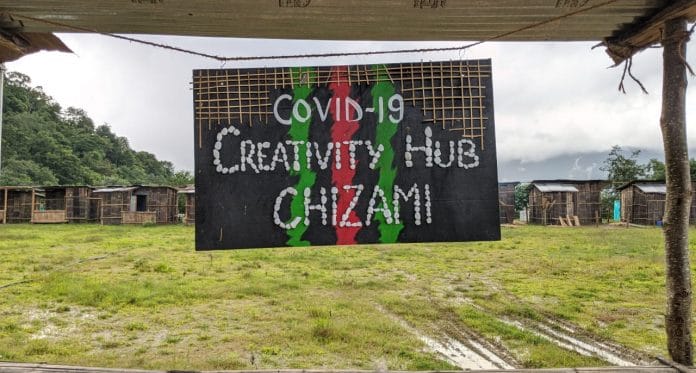New Delhi: Almost five months after the Covid crisis was officially declared a pandemic, India’s lockdown restrictions have been eased with Unlock 3 coming into effect from 1 August, allowing the reopening of gyms and Yoga institutes.
Rules for international travel to India have also been updated, with the suspension extended till 31 August, and the new guidelines, including new rules of quarantine, will come into effect from 8 August. Amid all this, Covid cases in India continue to rise, with over 18.5 lakh cases recorded till Tuesday.
ThePrint’s journalists have been travelling across the length and breadth of India to bring you the most accurate eyewitness accounts of how the pandemic, lockdown and easing of restrictions have impacted people. This week, they bring you accounts from Nagaland and Gujarat.
Also read: India’s Covid response is ‘flying blind’ without accurate deaths data, experts claim
In Nagaland’s Chizami, quarantine feels like a holiday
A clutch of eco-friendly bamboo huts set in the middle of dense greenery, where you can spend your days drawing, painting, making handicrafts or knitting, sounds like the perfect soothing holiday retreat. But it’s actually a Covid quarantine centre in Nagaland.
Located in Chizami, a village in the forested Phek district, this centre has 14 huts, a rainwater harvesting system, makeshift toilets and a compost pit. Nagaland’s Covid protocol mandates a 14-day institutional quarantine plus an extra fortnight in home quarantine for people entering the state. The facility in Chizami has been set up as a home quarantine centre.
“The returnees faced many troubles — they travelled all the way back to Nagaland, stayed put in government quarantine facilities, so we thought they must have been going through a lot,” Wetshete Thopi, an assistant professor at Patkai Christian College (Autonomous) Dimapur and the convenor of the Chizami Covid-19 task force, told ThePrint’s Angana Chakrabarti and Yimkumla Longkumer.
“Some of them must also be suffering from mental pressures as they have lost their jobs. So, we thought, why not create this centre. We also didn’t want to use the word quarantine because the term itself brings a sense of negativity,” Thopi added. Read more here.
Ahmedabad’s residents scared to go to hospital
Gujarat has been fighting a tough battle against the novel coronavirus, with the highest mortality rate in the country of 4.09 per cent, compared to the national average of 2.18.
ThePrint’s Kairvy Grewal and Praveen Jain have been travelling across the state and they found that in Ahmedabad, people have become skeptical about getting themselves tested, which is one of the reasons for late identification of the infection and a high death rate.
Ahmedabad Civil Hospital, the city’s largest government hospital, was slammed in the media and by the Gujarat High Court for its terrible condition, and since then, residents of the city have been wary.
Those who have recovered even complained about the lack of communication between doctors and patients, which is adding to fears.
Bilal Nagori, a 23-year-old college student, told ThePrint, “My father had been admitted to the (Civil) hospital. When he got tested, the doctors didn’t even reveal the results of the test.” He said the doctors didn’t even share the fact that his father urgently needed blood.
“The doctors only called us to inform that my father had died,” he added.
From Ahmedabad, ThePrint’s team travelled to Vadodara where 68 inmates of the Vadodara Central Jail tested positive for the novel coronavirus in the last week of July — four of them are critically ill and have been shifted to the city’s SSG Hospital.
The rest have been moved to a guest house owned by the Vadodara Municipal Corporation. Located near the jail, it has been converted into a temporary quarantine facility.
The infected prisoners are worried the numbers could be much higher than reported since they live in cramped quarters.
Salman Pathan, a murder convict who has spent three years in prison, told ThePrint: “I feel safer in this facility than the jail. In the prison, there are over 50 people in a small enclosed space. If even one person falls sick, all of us fall sick. There is no safety in a jail. Doctors also don’t come to treat us in a prison. They just give us medicines and leave.”
Read more about the impact of Covid-19 in Gujarat here and here.
Also read: August begins on a solemn note for India’s politicians — 6 test positive for Covid, one dies






